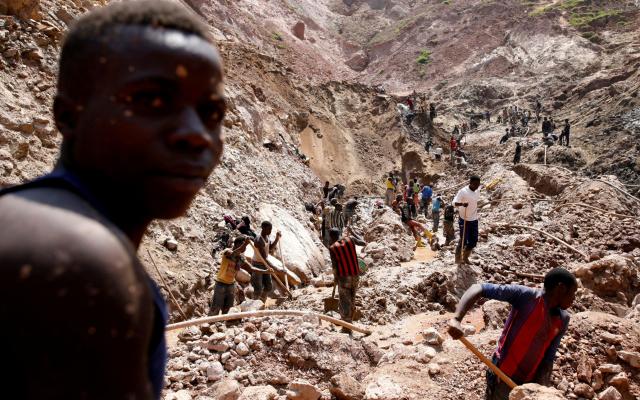
EU’s ‘blood’ minerals deal with Rwanda in spotlight as M23 rebels seize key mining town in DRC
The M23 rebel group with alleged links to Rwanda has seized a mining town in eastern Democratic Republic of Congo (DRC) known for producing a key mineral used in smartphones, which has raised questions about the European Union’s recent minerals agreement with Kigali.
A spokesperson for the M23 group said in a statement published on Thursday (2 May) that the rebels had “liberated” the town of Rubaya, which holds deposits of tantalum, a key component in the production of smartphones. It comes from coltan, one of the rare minerals listed in a letter recently sent by US and French lawyers representing the DRC’s government to Apple, who questioned the tech company’s knowledge of “blood minerals” being smuggled via Rwanda in its supply chain. “Rubaya has mining deposits and without doubt this will allow M23 to exploit them,” says Onesphore Sematumba, an analyst with the International Crisis Group (ICG).
It comes only weeks after the EU signed a Memorandum of Understanding (MoU) with Rwanda, aiming to nurture sustainable development and resilient value chains for critical raw materials across Africa. The DRC’s formal notice to Apple could now exert pressure on the European Commission to review its plans. The deal was immediately criticized by the Congolese President, Felix Tshisekedi, who denounced it as “a provocation in very bad taste.” He also alleged Rwanda was plundering Congo’s mineral resources, and slammed the neighboring country for exporting wealth that it does not have.
Alex Kopp, a senior campaigner with British NGO Global Witness, cautions that, given the evident gaps in the ITSCI tracing system, which ensures supply chains are free of conflict minerals, there was a high risk that the EU could end up sourcing “minerals that are smuggled and could be connected to armed conflict”. Echoing this view, Marc Botenga, an MEP with the Belgian Workers’ Party says that “when you make this kind of deal, it’s basically saying to Rwanda, ‘We’re perfectly fine with what you’re doing and we’re going to encourage you’.”
